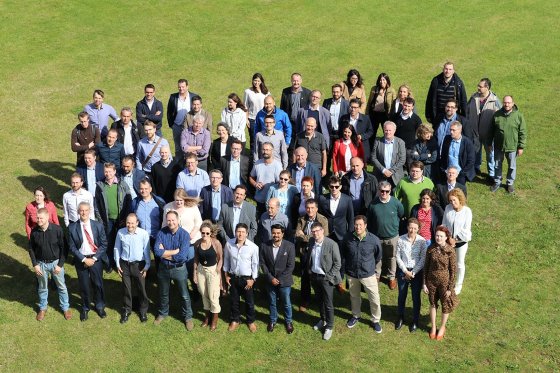
Agricultural technology experts gathered in Waterford in September to launch the DEMETER project which aims to digitally transform Europe’s agri-food sector and support vibrant rural areas. The DEMETER project will demonstrate how field and plant sensors, weather stations, and monitoring and control devices can support sustainable farming and food-production systems.
DEMETER is a large-scale European project which has received €17million in funding from the European Commission under Horizon 2020. The name DEMETER pays heed to the Greek goddess of the harvest who presides over grains and fertility of the earth. The project includes 60 partners and will involve 25 deployment sites, 6,000 farmers and 38,000 devices and sensors across 318,000 hectares in 18 countries. 20 pilot projects will run across five agricultural sectors namely dairy, meat, vegetables, fruit and arable crops. Different farm sizes and types will be involved, optimising the data obtained across multiple farms.
A multi-actor approach will be adopted across the value chain (demand and supply) where the farmer is involved from the start. Through this approach, farmers will be supported in precision decision making and farmer wellbeing will be central. Big names in world farming such as John Deere and the World Farmers’ Organisation are also involved in the project.
An open call for farmers, technology solution providers, and other interested parties will be launched next year, according to project co-ordinator, Kevin Doolin, director of innovation at the Telecommunications, Software and Systems Group (TSSG) at Waterford Institute of Technology.
“Demeter will demonstrate the real-life potential of advanced interoperability in the internet-of-things technologies across the value chain in multiple agri-food operational environments, involving different production sectors, production systems, and farm sizes,” said Kevin Doolin. “The €1m-budgeted project demonstrates TSSG’s and the project team’s strength as precision agriculture leaders in Europe.”
DEMETER will monitor plant and animal products during their life cycle from farm to fork, increasing on-farm profitability, lowering farming’s ecological footprint and decreasing the use of natural resources.


